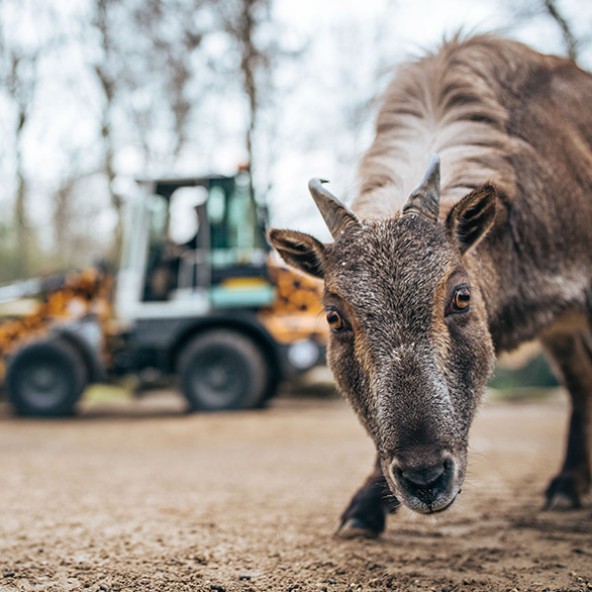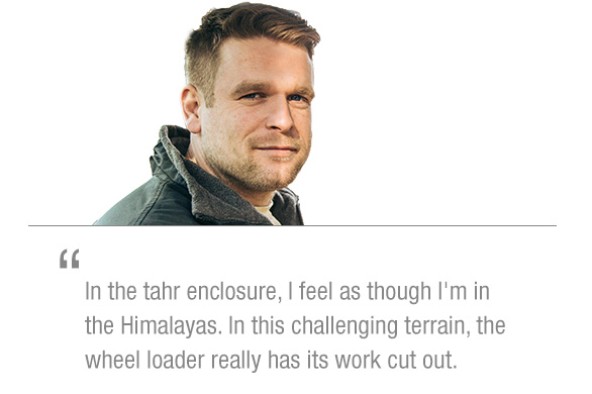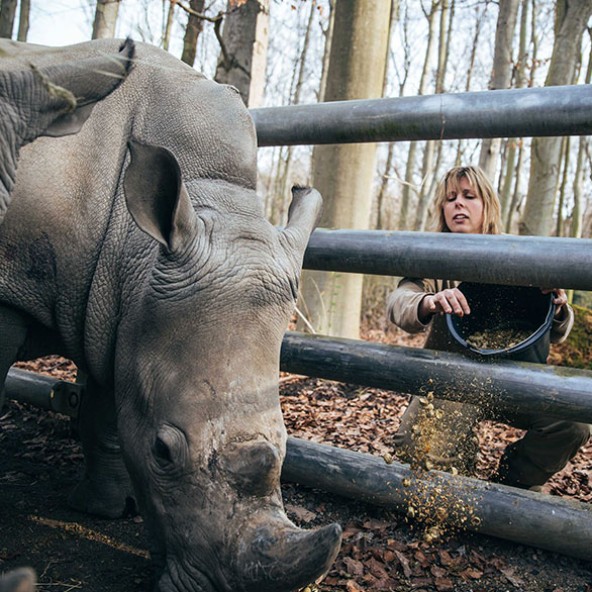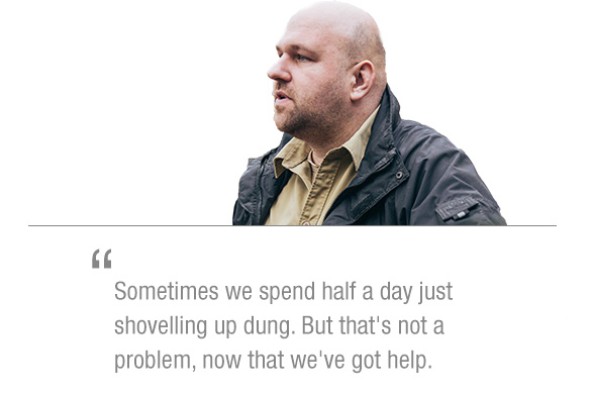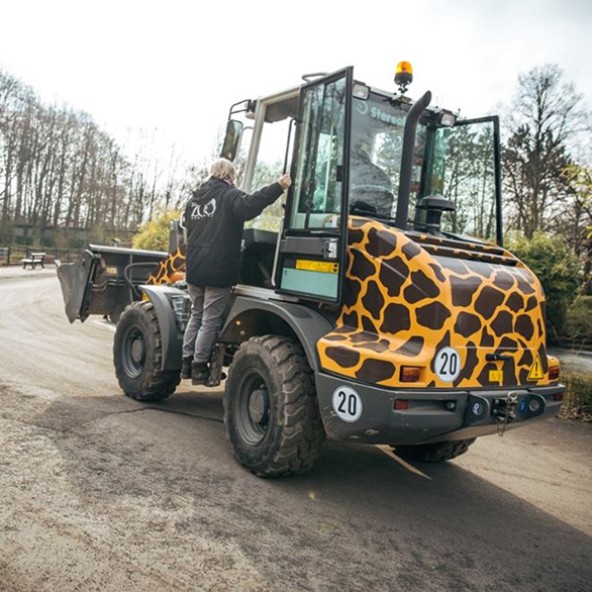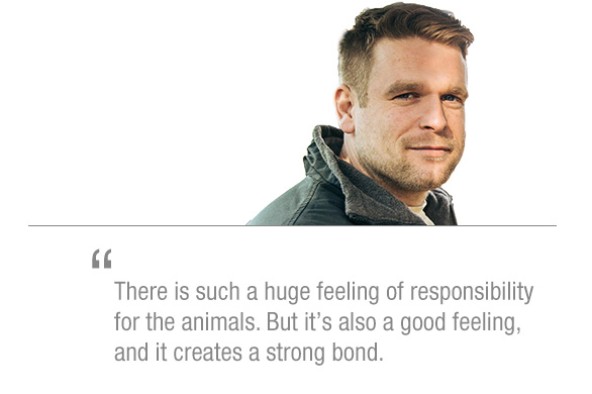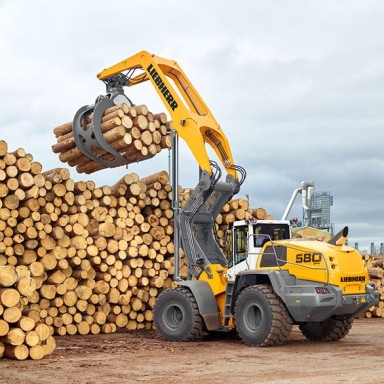 Group
Group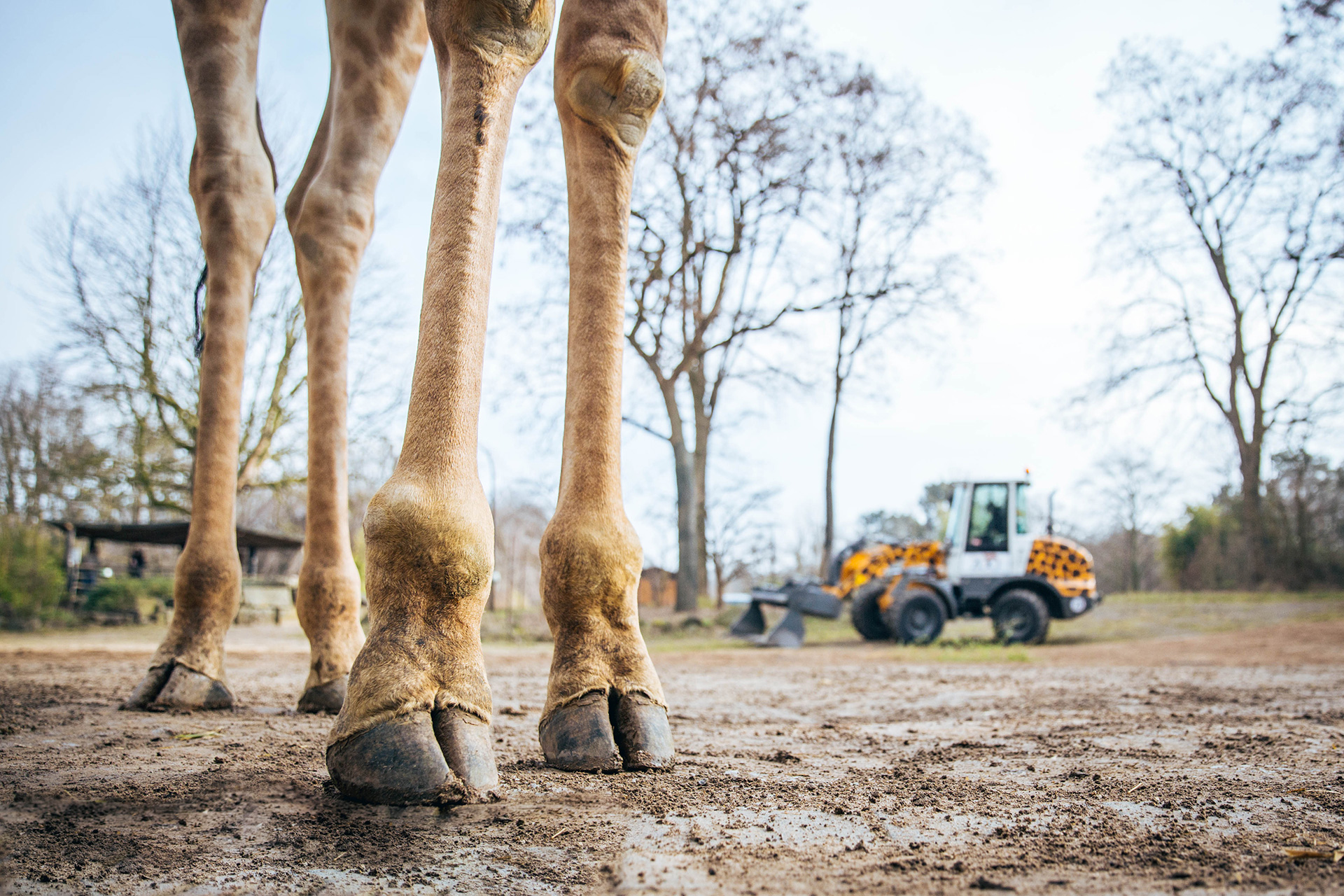
Click RELEASE VIDEO and follow the data protection notices.
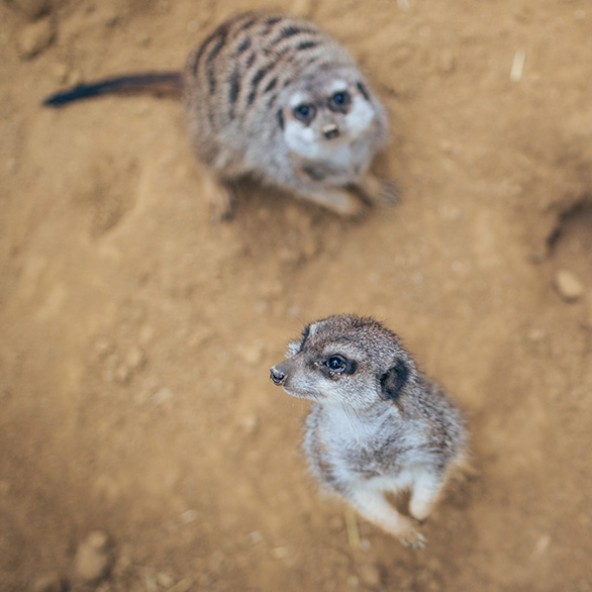
Ready for animal action
Dortmund Zoo, with around 1,500 animals and 230 species, is a huge crowd-puller. Keeping this motley and capricious community happy is a challenge in terms of manpower and materials and is really hard work – though visitors are scarcely aware of this. However, the zoo now features a very striking "beast of burden". It looks like a giraffe, burrows like a meerkat, is armed like a rhinoceros and moves as sure-footedly as a Himalayan tahr.
Meerkats share everything – even females
Meerkats love insects, but catching them is a problem, as there are no termite mounds in the zoo and no swarms of locusts flying by. "So sometimes we hide insects in a melon. We bore holes into it from all sides, put insects inside, and at the end there's nothing left," says zookeeper Benjamin Andrzejak. Live-packaged vitamins.
Playing, digging and their close-knit society keep meerkats healthy, which is vital for reproduction. However, the prospects here are bleak. At the moment, the only meerkats in the enclosure at Dortmund are three males. The last female recently died of old age. The keepers and zoo management agree that a new female is urgently needed. Only one? "Yes," confirms Andrzejak, "Meerkats share everything, even partners – everyone in the mob is allowed to breed."
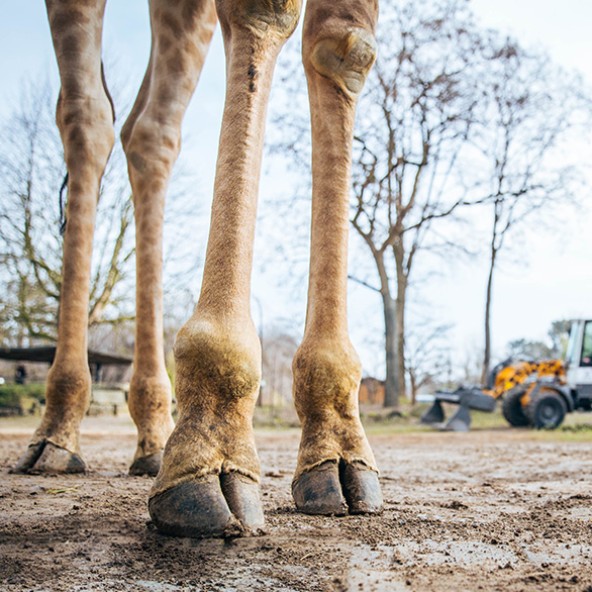
The Angolan giraffe
Strength under a calm exterior
Zikomo's coat is getting wavy and lies in thick ridges all over his body. "He's not yet fully-grown. In a year's time his coat will be smooth," says zookeeper Mike Pernau. Zikomo is a "young rebel". He is four years old and lives in an enclosure with his mother Gambela (20) and his aunt Himba (18).
Giraffes are actually very laid-back and peaceful and have the most beautiful eyes in the animal kingdom – really long eyelashes fringing dark gentle eyes – which these animals, the tallest in the world, use for keeping an eye on everything. Soon, Zikomo will be moved to Lisbon. It's too long a journey for him to make on his own feet. He belongs to a rare species, the Angolan giraffe. There are only two herds in the world, one in Dortmund and one in Lisbon. The aim is that he will bring new blood into the breeding programme there. Transporting him there will not be without risk. Here in Dortmund Zoo, they are all too well aware of that.

This video is provided by Google*. When you load this video, your data, including your IP address, is transmitted to Google, and may be stored and processed by Google, also for its own purposes, outside the EU or the EEA and thus in a third country, in particular in the USA**. We have no influence on further data processing by Google.
By clicking on “ACCEPT”, you consent to the data transmission to Google for this video pursuant to Art. 6 para. 1 point a GDPR. If you do not want to consent to each YouTube video individually in the future and want to be able to load them without this blocker, you can also select “Always accept YouTube videos” and thus also consent to the respectively associated data transmissions to Google for all other YouTube videos that you will access on our website in the future.
You can withdraw given consents at any time with effect for the future and thus prevent the further transmission of your data by deselecting the respective service under “Miscellaneous services (optional)” in the settings (later also accessible via the “Privacy Settings” in the footer of our website).
For further information, please refer to our Data Protection Declaration and the Google Privacy Policy.*Google Ireland Limited, Gordon House, Barrow Street, Dublin 4, Ireland; parent company: Google LLC, 1600 Amphitheatre Parkway, Mountain View, CA 94043, USA** Note: The data transfer to the USA associated with the data transmission to Google takes place on the basis of the European Commission’s adequacy decision of 10 July 2023 (EU-U.S. Data Privacy Framework).
"Once, a giraffe gave birth to her baby in a ditch. It couldn't stand up by itself, and the mother was becoming very distressed. We had to step in, but she defended her baby with her most fearsome weapon, her hooves," explains zookeeper Mike Pernau. Giraffes are family animals – when their environment is threatened, they can aim their kicks well. In the wild, a kick from a giraffe's hoof is generally fatal to a predator. People would fare no better.
"We had to put a cage over the newborn and get the mother out of the way. We were all scared stiff of her," he remembers.
When the mother and baby were reunited in the stall later, safe and sound, they were both peace personified, all traces of the mother's aggression had disappeared, even the baby giraffe's tiny horns were already almost erect. "That is one of the favourite questions asked by children at the zoo – what are those tiny horns on the giraffe's head and are they soft?" Pernau knows the answer – Zikomo is very trusting and allows him to stroke him between the horns. "Yes, the coat is soft," says Pernau, "but only the coat. Underneath, there is a sort of antler."
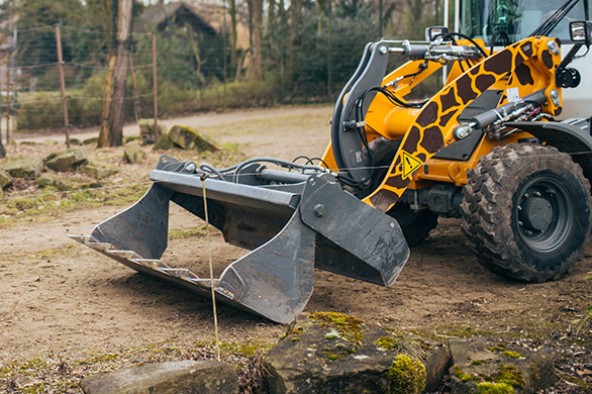
The extinction of many animal species in the wild means that zoos are often the last resort for the survival of a species. It is therefore important that the animals are healthy and that everything is done to prevent inbreeding. For this reason, stud books of all the animals are kept. Each zoo has animals allocated to it. For example, Lisbon is responsible for Angolan giraffes and has requested that Dortmund's young giraffe, Zikomo, be relocated to Portugal. Dortmund is responsible for the breeding of anteaters and giant otters.
Breeding requires a master plan. "The animals need caring for every single day," says keeper Benjamin Andrzejak. Garden superintendent Ursula Hettwer says: "We have four areas in the zoo, over 50 zookeepers, eight gardeners and three carpenters." And these have recently been joined by a Liebherr L 507 Stereoloader in a giraffe design. It came straight from the Liebherr sales branch in Dortmund. "Everyone loves the stereoloader! It's the perfect choice for rough and ready jobs and for those requiring a delicate touch, and it's already an attraction in its own right – everyone stops to look at it. It moves soil and improves paths. It hauls roots and helps to muck out sparrow hotels, pile up branches and leaves, transport earth and feed and excavate ponds." And? "It gets the gardeners playing rock-paper-scissors every morning – the winner gets to drive it."
Powerful all-rounder: the Liebherr L 507 stereoloader
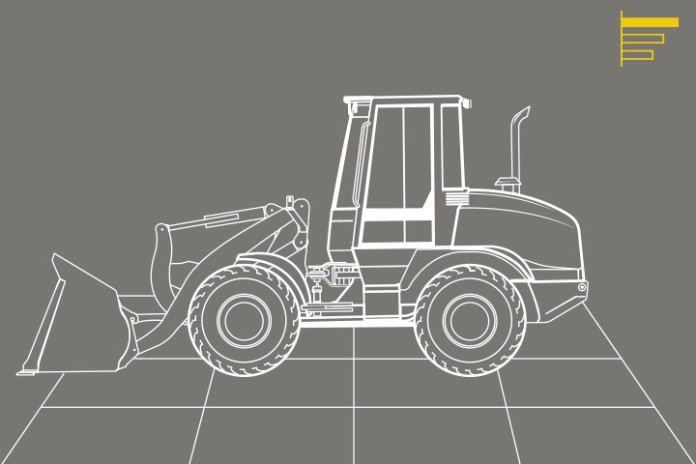
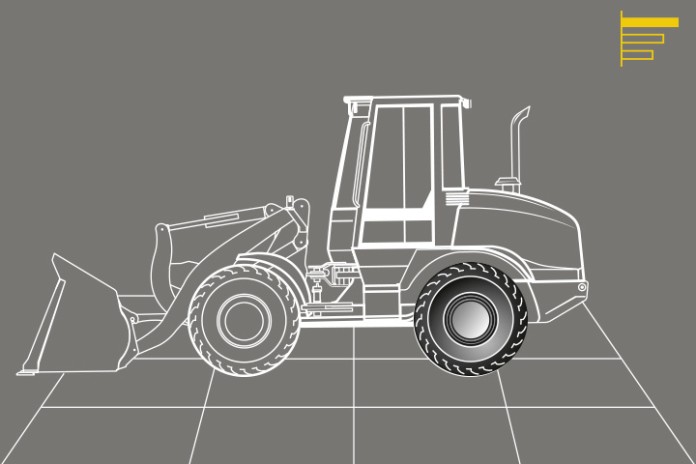
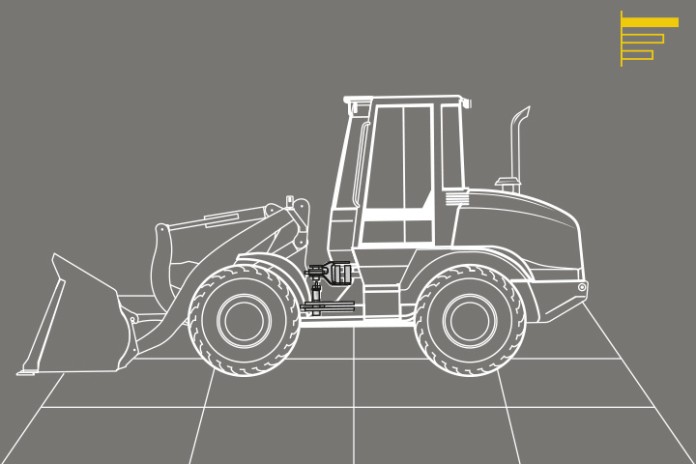

Rear-wheel steering
Find out more
Articulated steering
Find out more
Comparison
Find out more
Encounter with the sawn-up horse
Ursula Hettwer sometimes comes across the wheel loader in the fruit and vegetable store. "It shifts mountains of delicious food, things I would gladly cook for myself," she says with a wink. Her first visit to the cold store, however, was an altogether different affair. "I'm a vegetarian and a keen horse rider, and on my first tour of the zoo I ended up in the meat store, of all places. Hanging there was a half sawn-up horse – food for the big cats. That really upset me." Keeper Martin Horn confirms this: "That's the way it works here, we saw off portions of meat ourselves for our predators. We know our big cats really well and we know when they are hungry and how much food they need. But of course it does mean that the portioning of their meals isn't a very pretty sight."

This video is provided by Google*. When you load this video, your data, including your IP address, is transmitted to Google, and may be stored and processed by Google, also for its own purposes, outside the EU or the EEA and thus in a third country, in particular in the USA**. We have no influence on further data processing by Google.
By clicking on “ACCEPT”, you consent to the data transmission to Google for this video pursuant to Art. 6 para. 1 point a GDPR. If you do not want to consent to each YouTube video individually in the future and want to be able to load them without this blocker, you can also select “Always accept YouTube videos” and thus also consent to the respectively associated data transmissions to Google for all other YouTube videos that you will access on our website in the future.
You can withdraw given consents at any time with effect for the future and thus prevent the further transmission of your data by deselecting the respective service under “Miscellaneous services (optional)” in the settings (later also accessible via the “Privacy Settings” in the footer of our website).
For further information, please refer to our Data Protection Declaration and the Google Privacy Policy.*Google Ireland Limited, Gordon House, Barrow Street, Dublin 4, Ireland; parent company: Google LLC, 1600 Amphitheatre Parkway, Mountain View, CA 94043, USA** Note: The data transfer to the USA associated with the data transmission to Google takes place on the basis of the European Commission’s adequacy decision of 10 July 2023 (EU-U.S. Data Privacy Framework).
Hands off our penguin!
The next big project is already lined up: The fence around the zoo is being replaced. Here, too, the wheel loader can show what it's capable of. It is intended to make life difficult for burglars. Not only when they are breaking into the zoo, but above all when they are trying to get out again. The new fence design is supposed to make it virtually impossible. But who would steal from a zoo? "Animals are being stolen from zoos everywhere, or at least thieves are trying to do so. We once lost a penguin," explains Ursula Hettwer. Just recently, Dortmund Zoo received a warning from the police: rhinoceros thieves are on the move worldwide, even in Germany. "Rhinoceros horn is worth its weight in gold," says Ursula Hettwer. In Asia, it is seen as an aphrodisiac and a miracle cure for impotence. Because rhinos are as good as extinct in the wild, thieves are now trying to obtain horn supplies from zoos. For this reason, the keepers are always happy to meet up at the rhino enclosure outside opening hours. Everyone keeps an eye on whether things are OK. The people at Dortmund are a real zoo family.
